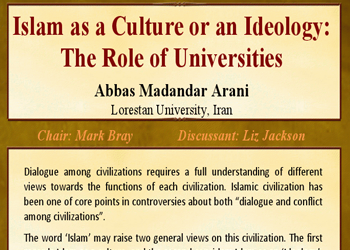Return to Other CERC Books.
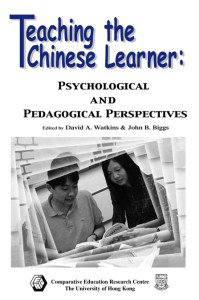 Edited by: David A. Watkins & John B. Biggs
Edited by: David A. Watkins & John B. Biggs
2001, 306 pp
ISBN 10: 962809372X
ISBN 13: 978-0864313812
HK$200 (local), US$32 (overseas)
Published by the Comparative Education Research Centre (CERC) and the Australian Council of Educational Research (ACER)
Order from CERC or online
Preview in Google Books
This book is a sequel to The Chinese Learner: Cultural, Psychological and Contextual Influences, which was first published in 1996 and has been widely acclaimed. The 1996 book made a seminal contribution to the field by focusing on the influence of cultural factors on approaches to learning in Chinese societies. Chinese learners were clearly doing some things better than their Western counterparts; but how was this achieved in large classes and harsh educational environments?
The present volume extends the earlier book by focusing on the work of teachers. It analyses the ways in which teachers in Hong Kong and China think about their teaching, and the ways in which they conduct their teaching. Differences between Chinese and Western approaches to teaching are identified, and lessons are drawn for educational reform.
Contents:
Setting the Scene
1. The Paradox of the Chinese Learner and Beyond (David A. Watkins and John B. Biggs)
Teacher Thinking
2. Towards a Model of Teaching Conceptions of Chinese Secondary School
Teachers of Physics (Gao Lingbiao and David A. Watkins)
3. The Role of Assessment in Student Learning: The Views of Hong Kong and Swedish Lecturers (Bo Dahlin, David A. Watkins and Mats Ekholm)
Teacher Practice
4. Teacher-Student Interaction: Attributional Implications and Effectiveness of Teachers’ Evaluative Feedback (Farideh Salili)
5. Are Chinese Teachers Authoritarian? (Irene T. Ho)
6. Large Classes in China: Teachers and Interaction (Martin Cortazzi and Jin Lixian)
7. Two Faces of the Reed Relay: Exploring the Effects of the Medium of Instruction (Dorothy F.P. Ng, Amy B.M. Tsui and Ference Marton)
8. Solving the Paradox of the Chinese Teacher? (Ida Mok, P.M. Chik, P.Y. Ko, Tammy Kwan, M.L. Lo, Ference Marton, Dorothy F.P. Ng, M.F. Pang, U.Runesson and L.H. Szeto)
9. Promoting Learning and Understanding through Constructivist Approaches for Chinese Learners (Carol K.K. Chan)
10. Problem-Based Learning in a Chinese Context: Faculty Perceptions
(Stephanie F. Stokes)
Changing Teachers
11. The Influence of Teacher Education on Conceptions of Teaching and
Learning (Thomas K.W. Tang)
12. A Conceptual Change Approach to University Staff Development (Angela S.P. Ho)
13. Transforming Teaching through Action Research (David Kember)
Overview and Conclusions Insights into Teaching the Chinese Learner (John B. Biggs and David A. Watkins)


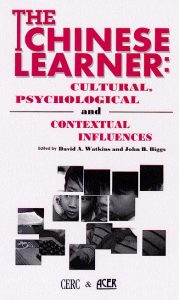 Edited by David A. Watkins & John B. Biggs
Edited by David A. Watkins & John B. Biggs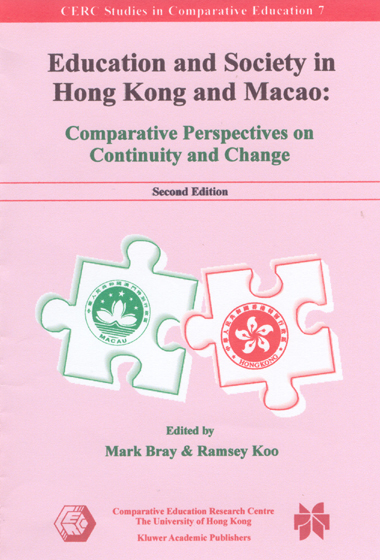 Mark Bray & Ramsey Koo
Mark Bray & Ramsey Koo

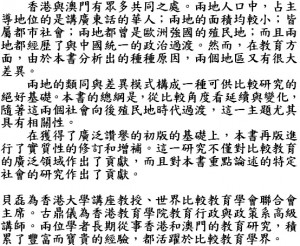
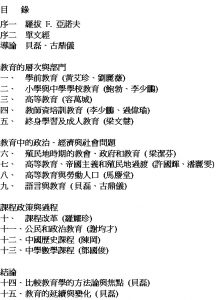

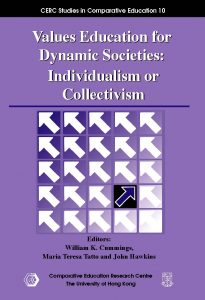 Edited by William K. Cummings, Maria Teresa Tatto & John Hawkin
Edited by William K. Cummings, Maria Teresa Tatto & John Hawkin
